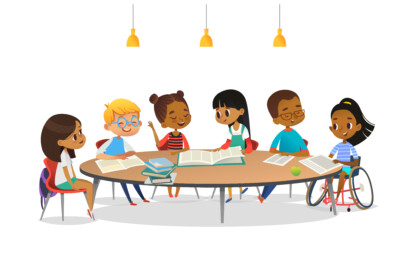It was about this time last year when I decided to get serious about the idea of developing a website to support teachers of English Learners. I had been thinking about it for at least two years as I got to know more about the needs of pre-service teacher candidates and practicing teachers in my state.
Emails came my way from teachers asking for advice about how to teach their ELs effectively. Some wanted to know about helpful print resources, or where they could find accurate online information. As I talked to more teachers, I realized they were also implicitly asking for something else – support.
Unless you’ve been hiding under a rock for the past 10 years, you know that education is becoming more de-professionalized every day. Teachers often lack support from students’ families, their administrators, and even their colleagues. Some feel as if they are tackling this tough job of teaching ELs all alone.
So…the idea was born.
Dear Dr. Mooney
Advice, Support, and Resources for Teachers of English Learners
In this way, teachers can find the information they want and the support from others that they need. The website launched in May 2019, and now it reaches readers from at least eight U.S. states.
Over the past seven months, I offered advice about a range of issues related to teaching ELs. Most of it can be grouped into two big ideas – understanding English learners and being understood by them and their families.
Understanding English Learners
Teachers wanted to know why ELs might be hesitant to speak during whole class discussions. Among other reasons, I suggested it might be because they’re still in the Silent Period, or they just need the teacher to give them more time to think about their response.
Occasionally when ELs do begin to speak up, they do so in their native language. This is understandable since it’s the language they know best. However, other times students might refuse to use their native language in class. It’s possible that age, fear, or issues of identity might be at the root of their self-imposed monolingualism.
Some teachers mistake those chatty students’ everyday conversational language use for full academic English competency. Knowing the difference between the two forms of language helps a teacher better understand their ELs so they can design more effective lessons.
Being Understood By ELs and Their Families
So often, teachers assume ELs are not their responsibility because they themselves are not multilingual. It’s a common sense belief that speaking the same language as your students is a prerequisite for teaching them. However, that’s not the case! In fact, in many situations it would be impossible for a teacher to speak all of the languages represented in their classroom. Knowing some fundamentals about language acquisition and a few instructional techniques can have you well on your way to teaching an English learner.
If you’re not bilingual, the best thing an English-only speaking teacher can do is to make their speech comprehensible to students. This effort can take many forms, including using visuals and demonstrations. However, an often-overlooked method is structuring opportunities for peers to provide this input during well-designed group activities.
Making your communication comprehensible to EL families can be challenging when you don’t know their native language and few translation services are available in your school. However, there are some simple tips you can follow to create documents that families will be more likely to understand.
If you have ever asked questions like the ones I discussed above, please know they are very common concerns among professionals desiring to reach all of their students.
I look forward to addressing even more questions like these from teachers just like you in the coming year.
Next week:
We’ll look back at resources that have been reviewed here and highlight the ways educators supported each other in the discussion forums.









